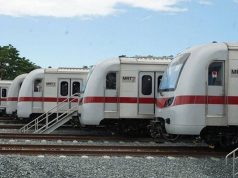
MANILA – A project providing a 71.13-kilometer rail connection between Subic Bay and Clark Freeport Zone has been given the green light by the country’s economic managers.
The National Economic and Development Authority (NEDA) Investment Coordination Committee-Cabinet Committee (ICC-CabCom) has approved the Subic-Clark Railway Project and will be elevated to the NEDA Board, chaired by President Rodrigo Duterte, for confirmation.
One of the Duterte administration’s 75 flagship projects, the railway project aims to support current industrial activities and the potential demand for freight services along the Subic-Clark corridor.
Apart from providing the needed infrastructure for Metro Luzon Urban Beltway and spurring the development of a freight railway system for Luzon, the project is seen to help decongest traffic in Metro Manila.
It is a joint project of the Department of Transportation (DOTr) and the Bases Conversion Development Authority (BCDA).
Apart from the railway project, the ICC-CabCom noted the increase in the Metro Manila Subway Project (MMSP)-Phase 1’s cost by P1.375 billion, or from P355.58 billion to P356.96 billion.
The increase in the project cost of the MMSP was based on the appraisal of the Japan International Cooperation Agency, which will finance the said project through an Official Development Assistance (ODA) loan package.
The MMSP- Phase 1 is a 25.3-kilometer subway that will run from Mindanao Avenue in Quezon City to Food Terminal Inc. (FTI) I in Taguig City and terminate at the Ninoy Aquino International Airport.
The ICC-CabCom likewise approved the request for an 18-month implementation duration extension of the National Irrigation Sector Rehabilitation and Improvement Project (NISRIP).
Among the reasons cited in the National Irrigation Administration’s request to extend the project timeline were delays in the procurement of consulting services and civil works and the poor performance of contractors resulting in the termination of some contracts.









